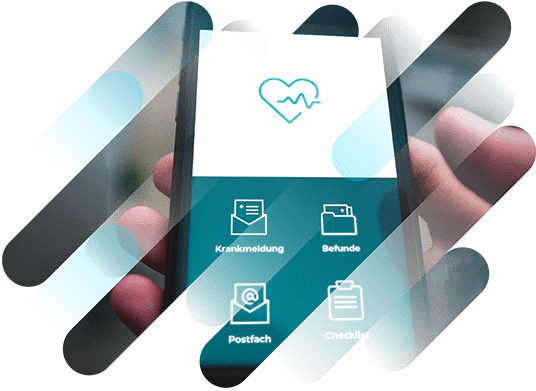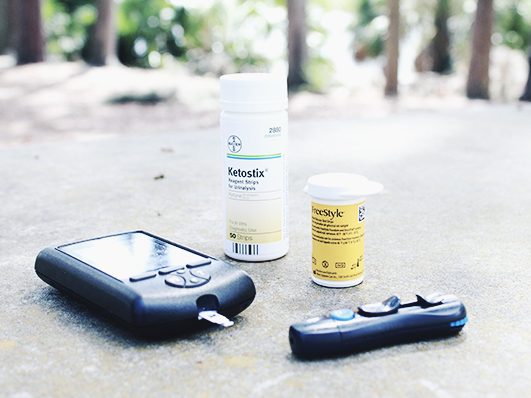New: Flexible service plans for Myra WAF. Learn more!
Home>
DiGA
At one
look
look
- 01. A definition of DiGA
- 02. How do I obtain a DiGA?
- 03. What are the advantages of DiGA?
- 04. Which DiGA exist?
- 05. How secure are DiGA?
- 06. DiGA data protection
- 07. DiGA data security
- 08. What are the risks of using DiGA?
- 09. How can DiGA be protected from cyber attacks?
- 10. What you need to know about DiGA
03
What are the advantages of DiGA?
DiGA contribute to professional medical care, especially the detection, monitoring, treatment, or alleviation of illnesses and injuries. The applications are used either by the patient alone or together with the treating physician. For example, the applications enable the collection of more precise diagnostics through the continuous recording of health values. The course of the illness and the progress made towards recovery can be tracked and analyzed seamlessly. In practice, these applications also help the patient avoid unnecessary appointments with doctors, which reduces the overall effort needed for treatment.
06
DiGA data protection
As defined by the General Data Protection Regulation (GDPR), providers and operators of DiGA must ensure the integrity and confidentiality of the processed data. In order to guarantee this, data controllers must take suitable technical and organizational measures. These include data encryption or pseudonymization technologies. In accordance with the Digital Health Applications Ordinance (DiGAV) and similar to what is required under the rules governing health insurance funds (Section 80 SGB X), data must be processed locally in the Federal Republic of Germany, the member states of the EU, the contracting states of the Agreement on the European Economic Area (EEA) and Switzerland, or in states for which there is an adequacy decision in accordance with Article 45 GDPR.
09
How can DiGA be protected from cyber attacks?
The same methods that are used to protect other sensitive business processes apply to the protection of DiGA. Dedicated security systems designed to protect against DDoS attacks on the online platforms themselves and the server structures behind them can be used to reliably defend against traffic flooding attacks across all relevant network layers. Automated access to the applications by bots should also be registered as such and prevented if necessary to effectively combat brute force, credential stuffing, or credential cracking. The most common attack vectors for web applications are addressed by a professionally implemented WAF solution that allows operating companies to also minimize the risk of any security gaps in the DiGA themselves. Continuous monitoring, regular security audits, and penetration tests round off the range of protective measures.
Myra is the specialist provider for the healthcare sector
Myra Security develops and operates highly certified protection solutions to secure digital business processes. As a specialist provider for sensitive and critical infrastructure, we have many years of experience protecting companies and organizations in the healthcare, finance, and insurance industries as well as in the critical infrastructure and government sectors. Customers in these highly regulated areas benefit from certified security and compliance with GDPR, IT-SiG, BSI-KRITIS, and industry-specific standards.
Want to learn more about our solutions, use cases and best practices for attack defense? In our download area you will find product sheets, fact sheets, white papers and case studies.
About the author
Stefan Bordel
Senior Editor
About the author
Stefan Bordel has been working as an editor and technical writer at Myra Security since 2020. In this role, he is responsible for creating and maintaining website content, reports, whitepapers, social media content and documentation. This role allows him to bring his extensive experience in IT journalism and technical knowledge to an innovative cyber security company. Stefan previously worked at Ebner Verlag (formerly Neue Mediengesellschaft Ulm) for 7 years and joined the online editorial team at com! professional after working for Telecom Handel. He gained his first journalistic experience during various internships, including at the IT website Chip Online. As a passionate Linux user, he follows the IT scene closely, both privately and professionally.








